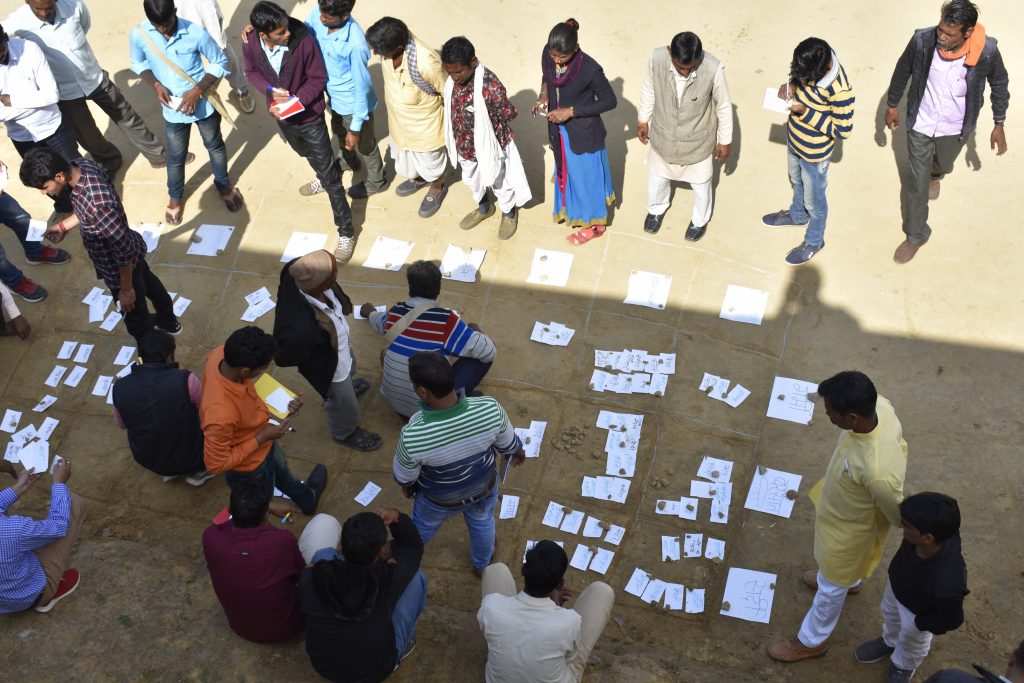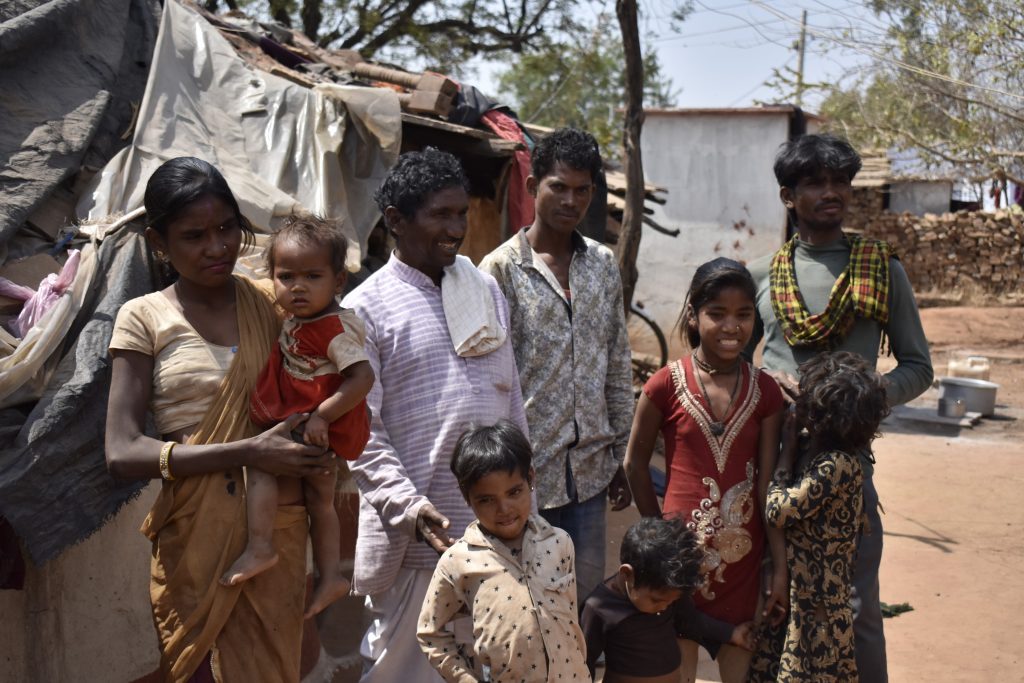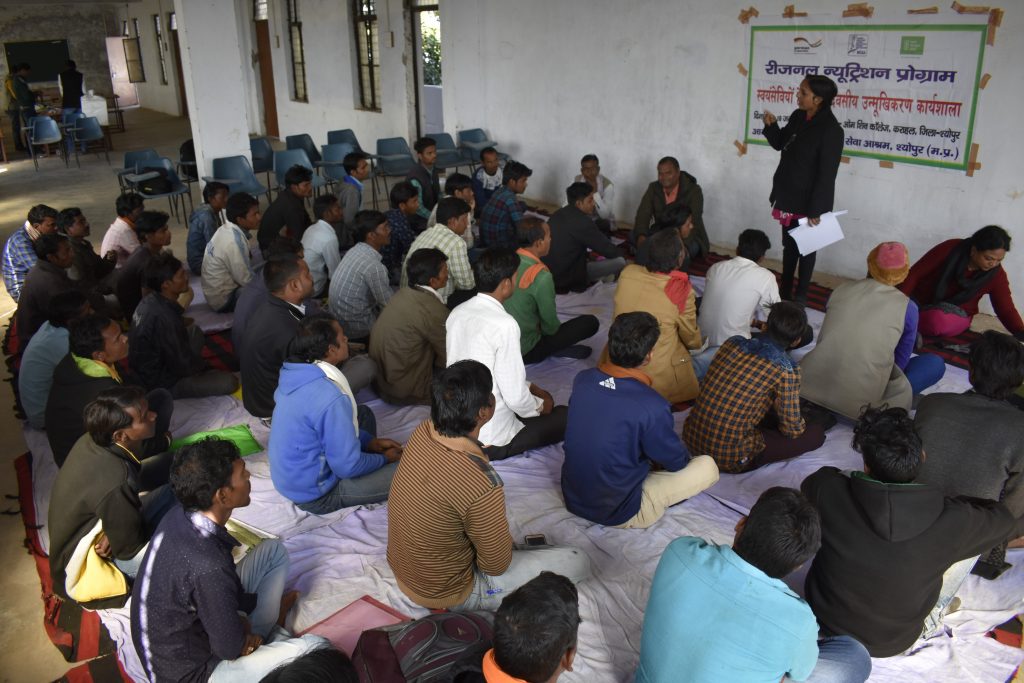More than 40 percent of the children under the age of five are underweight (weight-for-age) and stunted[1], and cases of intergenerational malnutrition are rampant in the state of Madhya Pradesh located in central India. The target areas where we work are remotely located and challenging because of high poverty, illiteracy, and social backwardness. However, to make food and nutrition security a reality, 100 self-motivated volunteers are playing a vital role in identifying and eradicating the ‘hidden hunger’ in Sheopur and Chhatarpur districts of Madhya Pradesh.
Connecting communities to mitigate ‘hidden’ hunger
Mitigating malnutrition is a challenging process. In Sheopur district alone, approximately 55 percent of the children under five years of age are underweight and 52.1 percent stunted. In Chhatarpur, 41.3 percent of the children under five years of age are underweight and 42.7 percent stunted.
To address these issues of malnutrition at the grassroots level, Welthungerhilfe adopts a multi-sectoral nutrition-sensitive approach. It works closely with the local communities to bring out individuals and families from the shackles of malnutrition and create nutrition smart villages. It is a model village where communities understand and take charge of their nutrition requirements, integrating agriculture with natural resource management, water, sanitation and hygiene (WASH).
To bring about a
cultural change in the region, Welthungerhilfe’s partner MGSA and Darshana
identified a network of 100 self-motivated individuals who are being trained on
various aspects of Sustainable Integrated Farming Systems (SIFS), nutrition
gardens, community mobilization, and childcare and feeding practices.

This network of 100 volunteers include people from different strata such as farmers, youth and mothers who are working towards spreading knowledge in their community. Most interestingly, it also includes individuals who were once under the ambit of malnutrition or still are.
The perennial cycle of malnutrition
45-year old Ram Charan living in Acharwala Seharna village in Sheopur has been a victim of intergenerational malnutrition. He belongs to the ‘Saharia’ community – categorized by the government as a particularly vulnerable tribe. Despite covering ninety-four percent of the total population in the area, low food security and undernourishment have been their long-standing problems. Ram Charan had a stunted growth and one of his grandchildren, Raj Adivasi who is only two and a half years, is also diagnosed as Moderately Acute Malnourished (MAM).
“Situations have changed visibly in the last few decades. Earlier we were primarily dependent on the forests and cattle rearing for our survival. But with the change in regulations our access over forest produce became limited”, shares Ram Charan.
In 2001, Ram Charan was allotted 2.4 acres of land by the government of Madhya Pradesh. However, it was only in 2016 that he was granted possession. “I practiced monocropping on my land. And from February to May when cultivation became difficult due to lack of water, we migrated to nearby towns in search of work and food”, he explains. With no land to cultivate and regular livelihood options, Ram Charan and his family gradually fell into the trap of malnutrition. Ram Charan lives with his wife, three sons and six grandchildren.

Despite all the odds, Ram Charan is one of the most active members in the 100-volunteers network. He is not only changing his agricultural practices following regular trainings but is also promoting his knowledge amongst his fellow communities.
Redefining agriculture and ensuring dietary diversity
Ram Charan has been trained on an approach promoted by Welthungerhilfe India called Sustainable Integrated Farming Systems (SIFS) that promotes agroecological practices to support smallholder farmers in producing and consuming enough nutritious and diverse food while improving their environment, economic and social situation. Regular farmer meetings are organized to record, analyze and collect first-hand information on the current cropping patterns in the region.
A recent workshop held on SIFS in February 2019 helped farmers-cum-volunteers like Ram Charan, who is also a master trainer, to adopt multiple cropping systems, create key-hole nutrition garden by recycling biodegradable household waste and grey water for cultivation of seasonal vegetables and fruits, thereby producing enough nutritious and diverse food for their consumption.
“I can now cultivate my land based on different food groups available locally and I am also developing a ‘key-hole kitchen garden’. This summer, instead of migrating to other places, I will adopt the integrated farming system on my land. I already got my field fenced with boulders and as part of the workshop received seeds for vegetables that can be grown in summer like bitter gourd, lady’s finger, bottle gourd, coriander and chillies. The recent workshop gave me new innovative ideas which I wasn’t earlier aware of. Interacting with agriculture specialists has given me clarity in optimally using my resources for maximum output and in achieving a nutrition balanced lifestyle for me and my family” explains Ram Charan.
Ram Charan is also a member of the farmers’ field school. He is going the extra mile and is also the lead farmer in conducting SIFS training for his fellow community members. He also coaches them on various soil treatment methos, using bio inputs and setting up kitchen gardens, to name a few.

Till date, around 250 farmers have been oriented by our 100 volunteers and another 1000 are expected to be trained by 1st July’19.
Strengthening nutrition sensitive intervention
21-year old volunteer Sonam Mishra, resident of Pahadi Baban village in Chhatarpur district focusses on community mobilization, empowers adolescents and raises awareness among mothers on childcare and feeding practices. “I support the project staff in conducting inclusive child screening. In one of the screenings of 102 children through stadiometer, infantometer and digital weighing machines, eight severely acute malnourished and 18 moderately acute malnourished children were identified. I also regularly visit the families and help them identify malnutrition and adopt good practices”, shares Sonam.
Sonam’s proactive actions have seen a visible impact on the mothers of Pahadi Baban village. They are now taking their children to the local Anganwadi Center (childcare center) for regular weight and height measurements and have adopted correct feeding and hygiene practices. “My dream is to see all the children in my village happy and healthy. If we want to remove malnutrition we have to ensure that the health of every child is regularly monitored. And I will ensure that this happens in my villages,” explains Sonam.
Waves of change
This network of 100 volunteers is playing a vital role in building a valuable relationship with the community, enabling them to learn, support each other and transform society effectively. Developing a cadre of ‘100 ambassadors of change’ is the first step towards improved food and nutrition security for many like Sonam and Ram Charan.
In all, 260 nutrition smart villages will be developed across some of the most backward districts of Bangladesh, India, and Nepal under Welthungerhilfe’s multi-country project titled ‘Regional Programme on multi-sectoral approach to promote Nutrition Smart Villages’.




